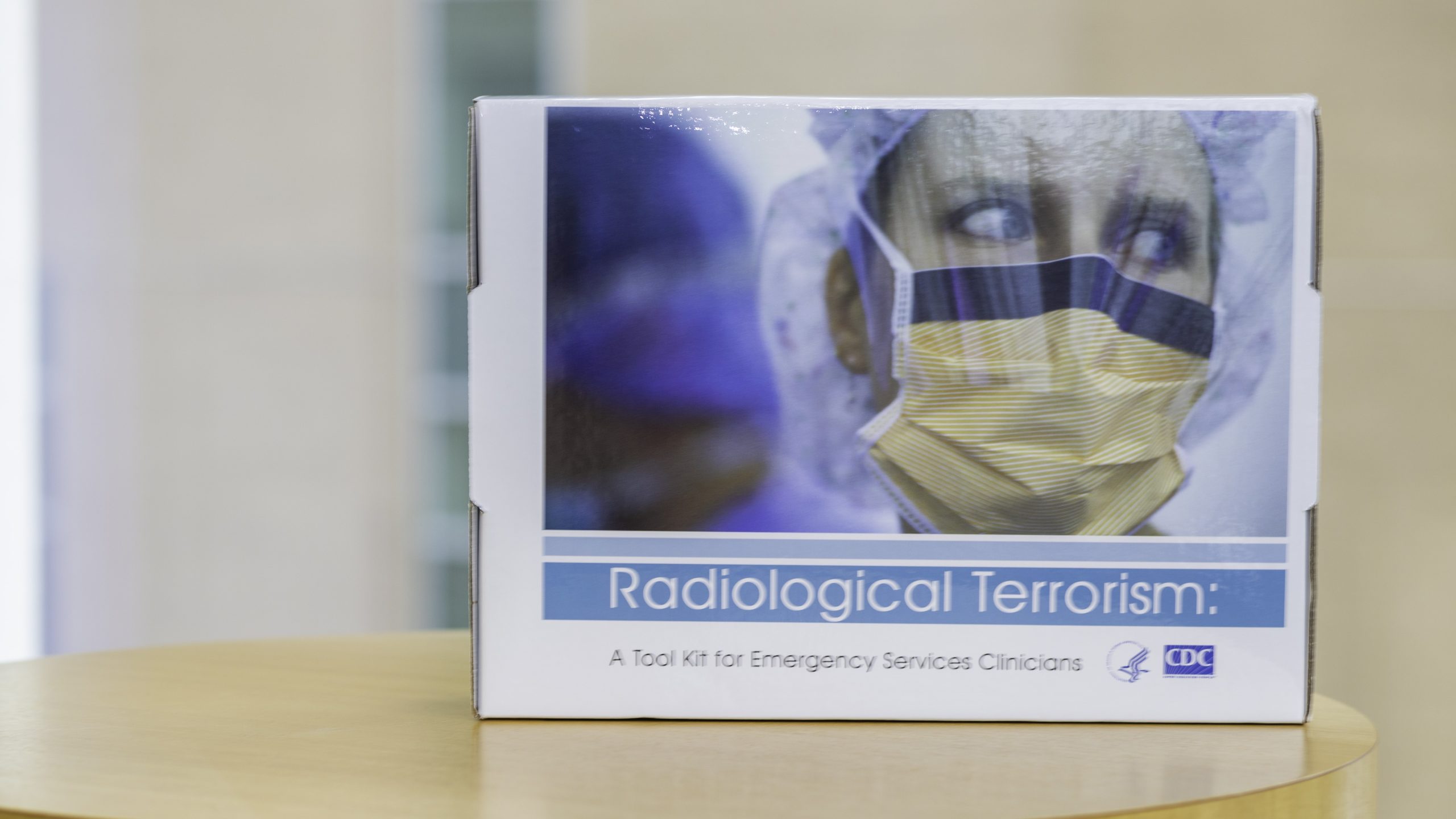Purpose
This page includes resources about patient management, guidelines and recommendations, and trainings. These resources can help clinicians develop response plans in the event of radiation emergencies.

Overview
CDC has played an increasing role in response and planning efforts for radiation emergencies. Audience research has helped identify significant gaps in knowledge and skills among clinicians about radiation emergencies. Gaps are particularly significant related to a response involving terrorism and mass casualties. This is a critical need since clinicians in hospital emergency departments would serve as the first receivers of casualties. Other clinicians would present to the emergency department to assist.
There are numerous issues related to disaster and mass casualty management that are unique to dealing with radiation exposure and contamination. CDC understands the need to provide education and information to help clinicians better manage such an event.
Emergency services physicians and nurses will be among the first clinicians to see and treat victims of radiation emergencies. Clinicians of all specialties will provide care and information to those affected, including
- Patients admitted to the hospital
- Patients presenting for follow-up care
- Concerned individuals
- Others with questions about health effects related to the emergency
Patient management
Signs and Symptoms of Radiation Exposure
Medical Management: Decontamination
Medical Management: Acute Radiation Exposure
Medical Management: Internal Contamination
Medical Management: Cutaneous Radiation Injury
Medical Management: Countermeasures
Use of Radiation Detection, Measuring, and Imaging Instruments
Guidelines and recommendations
"Just-In-Time" Resource for Hospital Receivers of Radiation Incidents: Nuclear Detonations
Clinical Considerations for Women Who Are Pregnant or Breastfeeding
Acute Radiation Syndrome: Information for Clinicians
Cutaneous Radiation Injury (CRI): Information for Clinicians
Neupogen® (Filgrastim): General Information for Clinicians
Radiological Terrorism: Emergency Management Pocket Guide for Clinicians
Interim Guidelines for Hospital Response to Mass Casualties from a Radiological Incident
Trainings
Just-in-Time Training for Hospital Clinicians
Medical Countermeasures for Radiation Exposure and Contamination
Medical Response to Mass Casualties
Psychological First Aid in Radiation Disasters
Screening People for External Contamination: How to Use Hand-held Radiation Survey Equipment
Related links
IAEA: International Atomic Energy Agency
EPA: RadNet – Tracking Environmental Radiation Nationwide
WHO: World Health Organization
HHS: Strategic National Stockpile
REMM: Isotopes of Interest

